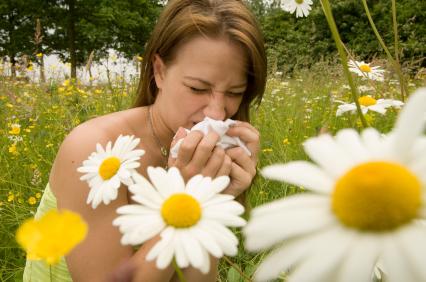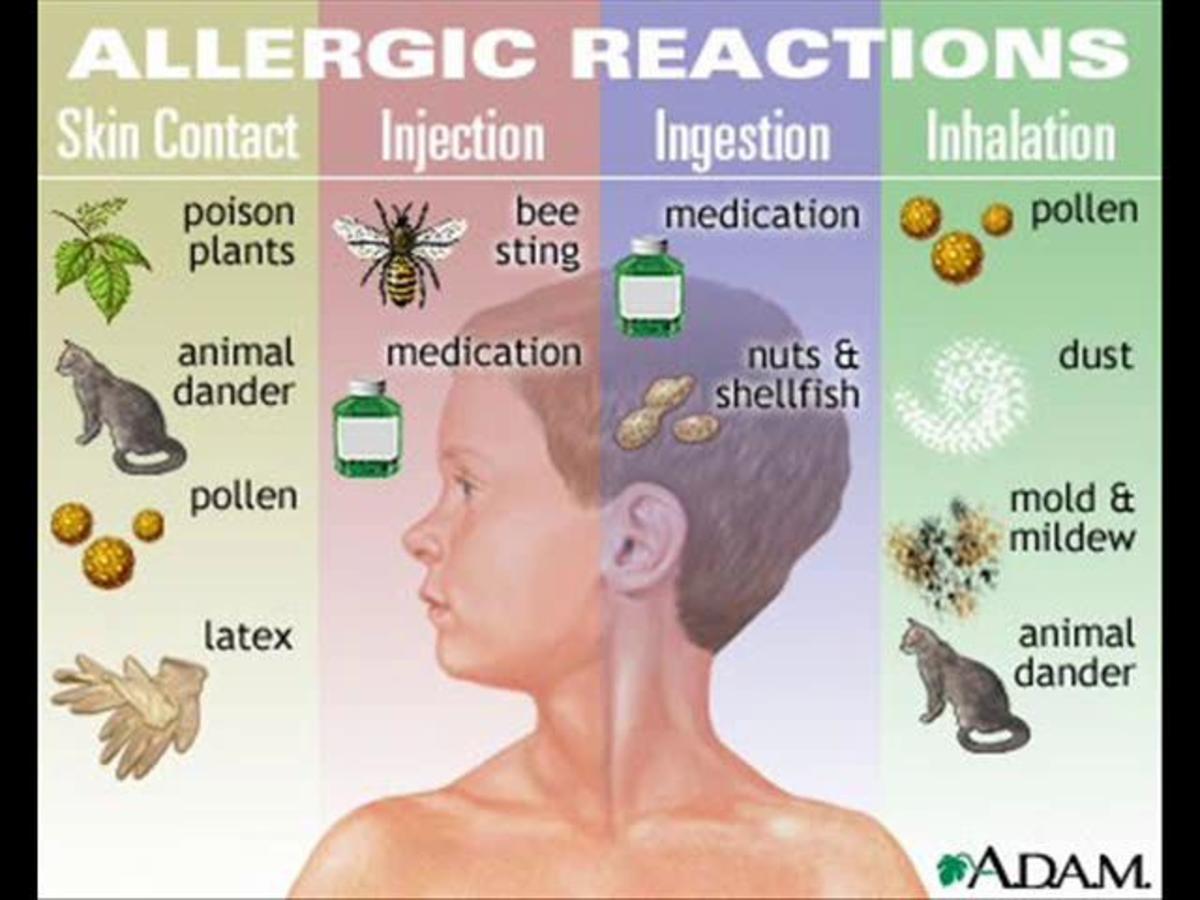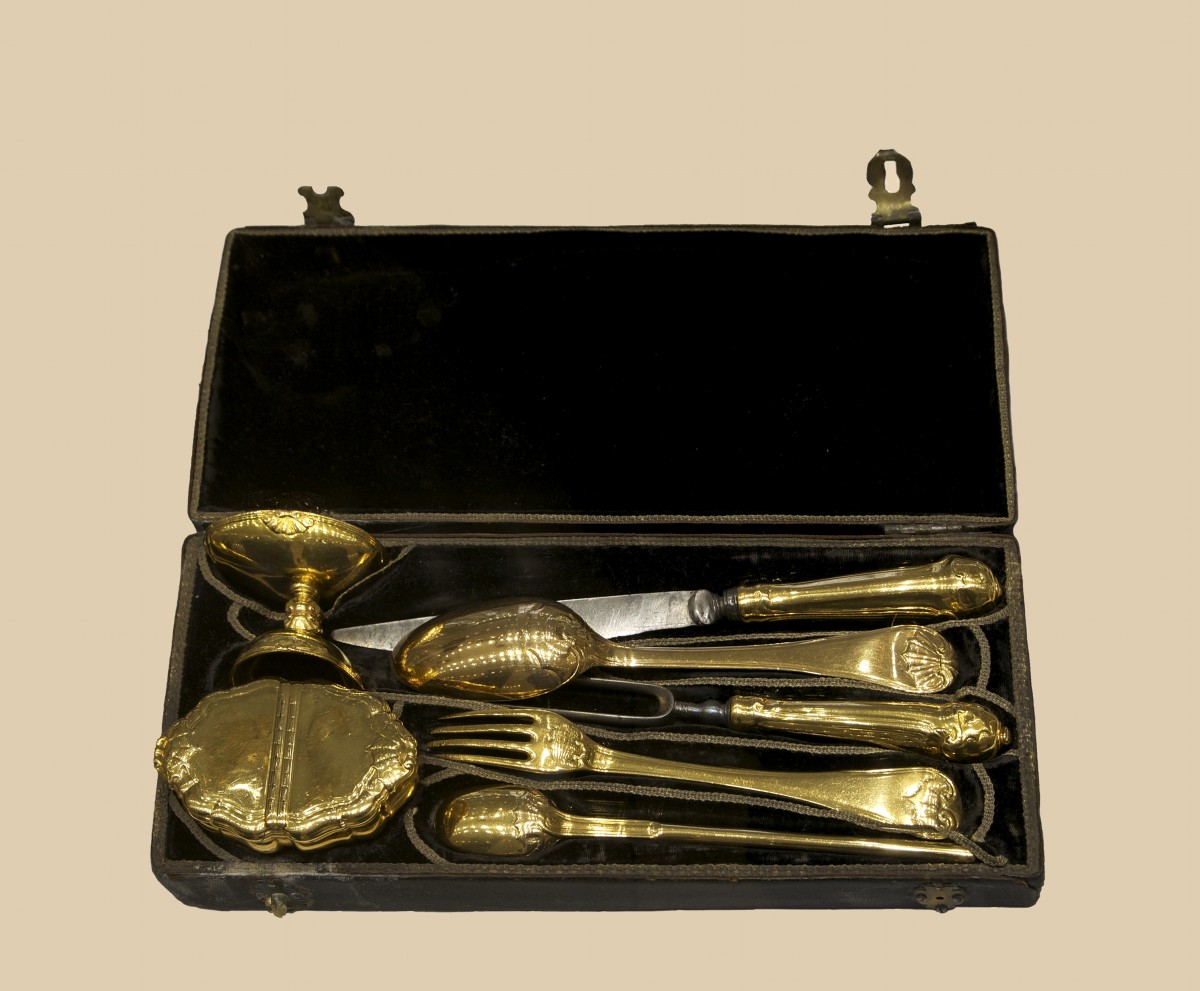Home Remedies for Allergies
Does Just Looking at This Image Make You Want to Sneeze?

Common Symptoms of Allergies
Typical allergy symptoms include (but are not limited to):
- sneezing
- itchy eyes
- congestion
- hives
- runny nose
- headaches
- migraines
- sinus pressure
- sinus pain
As an allergy sufferer myself, I swear by this sinus rinse from NeilMed. A simple saline solution, this product is an all natural way to clear up nasal congesti
Nasal Congestion? Make a Saline Spray
One of the most common complaints that come from allergy sufferers is nasal congestion.
Nasal congestion can be extremely uncomfortable. Interfering with your ability to smell, causing headaches and sneezing fits, and making you feel miserable overall, nasal congestion can keep you locked up inside when all you want to do is enjoy a beautiful spring day.
There are hundreds of medications available at almost every pharmacy to help cure nasal congestion, from prescription medications to over the counter nasal sprays. These medications however can be extremely pricey - especially if you need to buy them over and over just to get through the allergy season.
Saline nasal sprays can work wonders on congestion caused by seasonal allergies.
Although there are a plethora of saline nasal sprays on the market, you can actually make your own saline spray at home.
To create a homemade saline spray, mix a teaspoon of salt and a small pinch of baking soda with one pint of warm water in a bowl or glass. Sniff a bit of the solution into one nostril and allow the mixture to go down your nasal passages. Then do the same with the other nostril.
Use this mixture as often as needed to reduce and/or prevent nasal congestion.
Does the Thought of Spring Make You Sneeze?

Don't feel like brewing up your own peppermint tea? This peppermint oil can also be used to relieve the symptoms of allergies, and is one of my essentials durin
The Benefits of Peppermint Tea
Peppermint tea isn't just delicious, it is a great way to curb seasonal allergy symptoms. Providing relief for congestion by soothing irritated mucous membranes, a hot cup of peppermint tea can be your best friend during allergy season.
Not only does peppermint tea work as a decongenstant, it is also an anti-inflammatory and even a mild antibiotic.
Recipe for homemade peppermint tea:
Take half an ounce of dried peppermint leaves and place them in a one quart jar. Fill the jar two thirds of the way with boiling water. Allow the leaves to steep for five minutes. While the leaves are steeping, keep your head over the jar and inhale the steam to open your nasal passages. After five minutes, strain the leaves and then drink.
Ingredients for Peppermint Tea
- 1/2 ounce Peppermint Leaves, Decongestant
- One Quart Jar
- Water
- Sweetener, ideally Honey, (if desired)
Rate My Homemade Peppermint Tea
Recipe for Homemade Peppermint Tea
- Take half an ounce of dried peppermint leaves and place them in a one quart jar.
- Fill the jar two thirds of the way with boiling water. Allow the leaves to steep for five minutes.
- While the leaves are steeping, keep your head over the jar and inhale the steam to open your nasal passages.
- After five minutes, strain the leaves.
- Enjoy your tea!
- (Side note: to make an iced peppermint tea, follow the above recipe, then place the jar in the sun to allow the full flavor of the peppermint to be extracted from the leaves. Place the jar in the fridge and serve on ice once cooled).
Natural Home Remedies for Allergies
Herbs That Help Relieve Allergic Symptoms
- Turmeric
- Peppermint
- Rosemary
- Gingko
- Nettles
- Butterbur
- Elderflower
- Eyebright
Spice Can Be Nice When Allergies Strike
Spicy food is a great way to unclog a stuffy nose. When allergies have you feeling like your heads in the cloud, a quick snack with a bit of a kick can be just the thing to cause the stuffiest nose to start running.
Wasabi, that pale-green, fiery condiment served with many Japanese dishes, is known for its spicy flavor, as well its benefits for the sinuses. Wasabi has an ingredient in it called allyl isothiocyanates, known to promote the flow of mucus.
Turmeric - One of Nature's Most Powerful Healers
Turmeric has been used for over 2500 years - both for cooking, as well as for healing.
Originally used for anti-inflammatory, recent studies have discovered a plethora of other benefits from this Indian spice.
Turmeric can be used as an anti-inflammatory, a pain reliever, and an antibiotic. It is available in supplement form, but can also be found in the spice aisle of your local grocery store.
You don't need to take the supplement form to benefit from the effects of turmeric - it is so powerful that by just adding it to your dishes, you should feel the benefits of this spice.
Stop Suffering and Get Outside!

Itchy Eyes? Try Eyebright
Allergy sufferers know the agony of itchy, irritated eyes. As an allergy sufferer myself, I know that itchy eyes and an itchy nose can drive me nuts! However, there is an herb called eyebright that works great for treating the itchy side effects of allergies.
Part of the Figwort family of herbs, eyebright has been scientifically proven to reduce inflammation and itchiness in the eyes and the nose. It comes in both plant form, as well as supplement form - both of which are effective in treating allergy symptoms.
Suffer from Hay Fever? Increase Your Fish Intake
Athough research is still ongoing as to why this happens, omege-3 fatty acids have been shown to help improve symptoms of seasonal allergies.
Helping to reduce congestion and migraines, German research has shown the effficacy of omega-3's when it comes to treating allergy symptoms, in particular, hay fever.
Foods high in omege-3 fatty acids include many types of fish, especially salmon, flaxseed oil and walnuts. Other foods known to be rich in this essential nutrient include yogurt, peanut butter, and spinach.
Do You Wish Your Allergies Would Disapper?

Allergy Poll
Do you suffer from allergies?
Allergy Season Approaching? Stock Up on Local Honey
Not only is it a natural sweetener, but currently researchers are turning up more and more new evidence showing a plethora of medical benefits from sweet, sticky, honey.
Honey helps allergy sufferers build up an immunity to pollen, it works as an incredible antiseptic, it can heal infections in the eye, and it can even cure athlete's foot!
The best honey you can use when trying to tackle allergy problems is honey that is created close to your home. Believe it or not, pollen in a location away from home will affect allergy sufferers in a different way than pollen around their home.
Because bees produce honey, and bees pollenate flowers, by eating local honey, you can help build up an immunity to one of the most common seasonal allergies.
© 2014 Kathleen Odenthal









